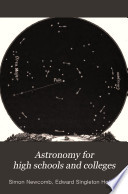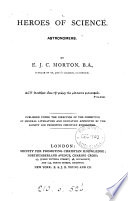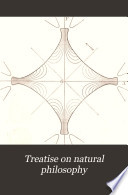 that every particle of matter in the universe attracts every other particle, with a force whose direction is that of the line joining the two, and whose magnitude is directly as the product of their masses, and inversely as the square of their distances... that every particle of matter in the universe attracts every other particle, with a force whose direction is that of the line joining the two, and whose magnitude is directly as the product of their masses, and inversely as the square of their distances...  Popular Astronomy - Page 75by Simon Newcomb - 1878 - 578 pagesFull view Popular Astronomy - Page 75by Simon Newcomb - 1878 - 578 pagesFull view - About this book
 | Simon Newcomb, Edward Singleton Holden - 1880 - 542 pages
...NEWTON was able to formulate his great law of universal gravitation in these comprehensive words : ' ' Every particle of matter in the universe attracts every other particle with a force directly as the masses of the two particles, and inversely as the square of the distance which separates them.'1'1... | |
 | George Minchin Minchin - 1880 - 568 pages
...POTENTIAL. SECTION I. Solid Distributions of Matter in General. 241.] Universal Law of Attraction. Every particle of matter in the universe attracts every other particle with a force whose direction is that of the line joining the two particles, and whose magnitude is directly proportional... | |
 | Edward John C. Morton - 1880 - 58 pages
...satisfies the facts. | V. — Of the verification of the Law of Gravitation. 1. The Law of Gravitation. Every particle of matter in the Universe attracts every other particle with a force varying directly as the product of their masses, and inversely as the square of the distance between... | |
 | Simon Newcomb, Edward Singleton Holden - 1881 - 544 pages
...NEWTON was able to formulate his great law of universal gravitation in these comprehensive words : " Every particle of matter in the universe attracts every other particle with a force directly as the masses of the two particles, and inversely as the square of the distance which separates them."... | |
 | Robert Routledge - 1881 - 748 pages
...all physical laws was finally deduced by Newton, namely, the Law of Gravitation, which affirms that every particle of matter in the universe attracts every other particle with a force which is inversely proportional to the squares of the distances between them. Newton demonstrated that... | |
 | Edward John Chalmers Morton - 1882 - 370 pages
...and is unquestionably the most remarkable discovery ever made by the mind of man. It may be stated as follows : — " Every particle of matter in the...universe attracts every other particle with a force varying directly as the product of their masses and inversely as the square of the distance between... | |
 | Edmund Ledger - 1882 - 490 pages
...one•half of that for Mticury. century, subsequently discovered the great law of gravity, viz., that every particle of matter in the universe attracts every other particle with a force which is proportional to the inverse square of their distance apart, he showed that two other laws... | |
 | William Thomson Baron Kelvin, Peter Guthrie Tait - 1883 - 564 pages
...to be carefully considered in the next proposed Division of this Treatise, a may be thus enunciated. Every particle of matter in the universe attracts every other particle, with a force whose direction is that of the line joining the two, and whose magnitude is directly as the product... | |
 | Charles Samuel Eby - 1883 - 324 pages
...Gravitation, in which, going by analogy quite beyond the bounds of our direct observation, we say that every particle of matter in the universe attracts every other particle with a certain force. In this general result we are able to find a common explanation (in the sense I have... | |
 | W H. Sharp - 1884 - 66 pages
...gravitation " ? It is necessary in order to understand it, to quote Newton's law, which asserts that "every particle of matter in the universe attracts every other particle with a force, whose direction is that of a line joining the two, and whose magnitude is directly as the product of... | |
| |